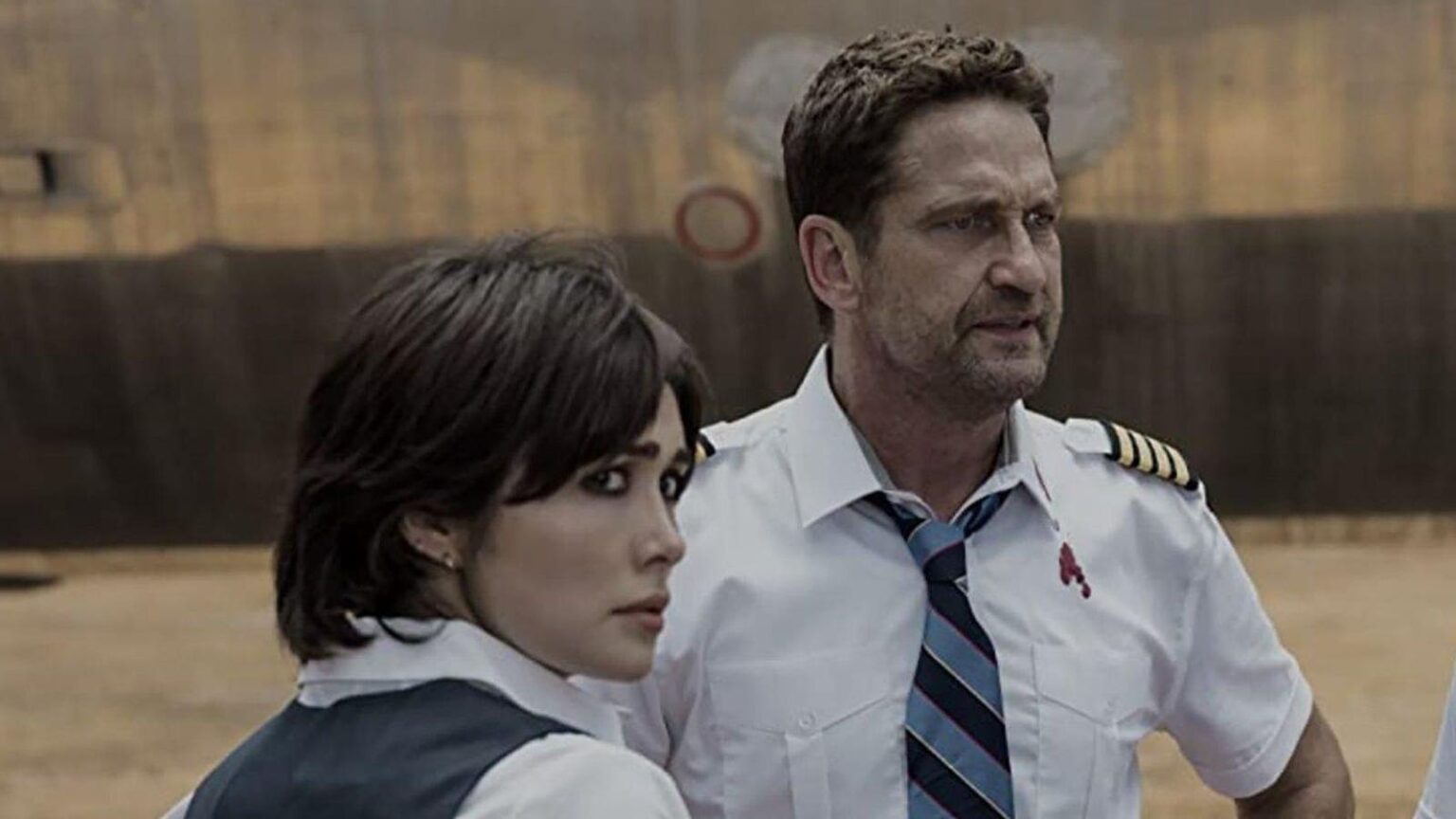Daniella Pineda, Gerard Butler and Yoson An star in the 2023 action thriller ‘Plane.’
NetflixDuring the Golden Age of Hollywood, the term “B-movie” referred to the second half of a double feature. Essentially, these were cheaply made flicks that relied on stock sets, contract actors and genre formulas (westerns, crime thrillers, monster movies, etc.), and they were perceived to be inferior to the “A-movies” that featured big stars and prestige. But over time, the B-movie status evolved from a technical label to a tonal one, and these films became a playground for genre experimentation. And over time, the genre has evolved into something beautiful and modern. This is all to say you shouldn’t skip on watching Plane, the latest and greatest action movie to grace Netflix—especially since the film surprised everyone, including critics, and scored nearly 80% over on Rotten Tomatoes from 173 reviews.
When Plane was first announced, it felt as though everyone on the internet collectively rolled their eyes. The title seemed like a parody of itself: Gerard Butler…on a plane. Right. He probably punches someone mid-flight. Right. And he has to save everyone from impending destruction. Right. We get it. We’ve seen this kind of story before, with Den of Thieves, with Olympus Has Fallen, with Copshop and Greenland and Hunter Killer—I could go on. The whole thing sounded like the kind of bargain-bin action flick you half-watch on a Sunday afternoon while folding laundry.
And honestly? That’s not entirely wrong. But what’s surprising about Plane is that, despite its throwback packaging and B-movie premise, it manages to be… solid. More than solid, really. And in today’s landscape of overbaked blockbusters and algorithm-churned content, “solid” feels almost radical. In fact, it’s a fantastic way to spend 107 minutes in front of the television.
The film follows Captain Brodie Torrance (Butler), a widowed pilot just trying to get through a New Year’s Eve flight from Singapore to Tokyo. On board his flight is a handful of passengers, a convicted murderer in cuffs (Mike Colter) and a weather pattern that would make anyone nervous to fly. After a harrowing emergency landing on a remote island controlled by anti-government militias, the film veers into full-throttle jungle mayhem, with Butler and Colter teaming up for a violent fight for survival. Essentially, it’s Sully meets Rambo, but with more grit and less polish.
Critics were quick to admit their expectations were low—and that the movie cleared the bar with surprising ease. Over at The Hollywood Reporter, Frank Scheck praises the “breathlessly paced suspenser” and Richet’s clarity in staging action sequences. He singles out a brutal, single-take fistfight that gives Plane some real brawn, and applauds the film’s ability to sneak in character beats without slowing the tempo. “It gets the job done,” Scheck writes, “which is more than you can say for most genre films these days.”
Variety’s Owen Gleiberman described Plane as a genre blender that keeps pivoting, from disaster film to jungle thriller to buddy movie, but never loses its grip. He compared it to something pre-Die Hard, when action movies felt more grounded in character than spectacle. Butler, now in his 50s, leans into the role with just enough gruff sincerity to make Brodie feel like more than a stock hero. And Colter’s Louis Gaspare might be one of the more interesting sidekicks in recent action memory: stoic, enigmatic, and constantly teetering between threat and ally.
David Ehrlich at IndieWire was even more enthusiastic. He framed Plane as a dad-movie dream, praising its “sinewy sincerity” and restraint. Unlike so many modern action flicks, Plane takes its time. The cockpit sequences are given space to breathe. The fight scenes are brutal but coherent. And Butler, as Ehrlich puts it, “knows his strengths like the back of a bad guy’s broken neck.” There’s a warmth to the movie that makes its cliches feel earned, not lazy. It’s throwback cinema, sure—but of the kind that actually throws punches you feel.
That doesn’t mean Plane is without its issues. Its portrayal of the Philippines as a third-world hellscape hasn’t gone unnoticed. Nor has its simplistic view of geopolitical conflict. But even those critiques sit beside acknowledgment that the movie doesn’t take itself too seriously. It’s a film where a man MacGyvers a jungle phone line just to call his daughter, fights mercenaries with a handgun and a headset, and then climbs back into a busted jet to finish what he started. It’s ridiculous…but intentionally so.
In an era where so many action movies feel bloated, impersonal, or too preoccupied with setting up spin-offs, Plane is refreshingly straightforward. It’s less than two hours long, and its pulp fiction done right. You might not remember every detail after the credits roll, but for a film called Plane, it doesn’t just fly—it lands.
Read the full article here


